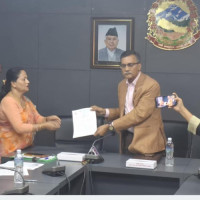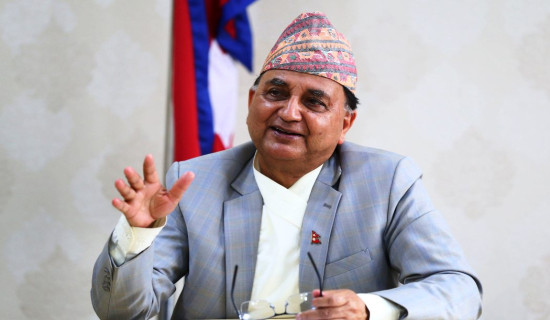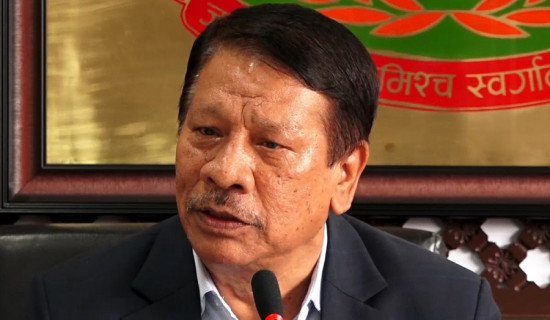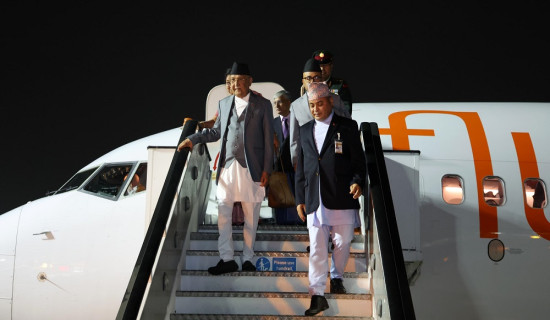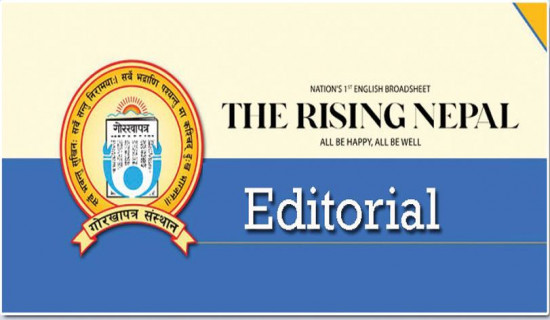- Monday, 4 August 2025
Rapid development ushers in new era in China's new Xizang
Sharachchandra Bhandary
Lhasa (China), June 29: Coinciding with the 70th anniversary of the establishment of diplomatic relations between Nepal and China, a program on collaboration, partnership and experience exchange was recently organized here between the cities that have established sister city relations with various cities in China.
The programme, jointly organized by the Consulate General of Nepal here and the Department of Foreign Affairs of the Xizang Autonomous Region, discussed the issue of further strengthening and deepening relations between the two countries. A friendly and cooperative relationship characterized mutual respect, understanding and support have been strengthened at the government and people's level through various high-level exchanges and agreements since time immemorial.
The sister city relations, which began with the establishment of collaboration between Banepa Municipality and Shigatse Municipality in 1999, have entered into 25th year. In the past 25 years, sister relations have been established between Linchi-Pokhara, Lhasa-Kathmandu, Sannan-Bhaktapur, Karua-Jiri, Nakchu-Tokha and Shigatse-Bharatpur.
The programme, which was organized for the first time by including municipalities with sister cities, was participated by a delegation led by Dhanraj Acharya, the Mayor of Pokhara Metropolitan City. The delegation consisted of 21 participants, including representatives from the Bagmati Province Government, Kathmandu, Pokhara and Bharatpur Metropolitan Cities, and Dhulikhel, Banepa, Jiri, Tokha and Bhaktapur Municipalities. Representatives from Lhasa, Shigatse, Linzhi, Nakchu, Sannan, Karuo, Nagar and Ali Prefectures of Xizang Autonomous Region participated in the programme.
On the occasion, Vice Chairman of the Xizang Government Zhao Ping expressed his belief that the programme would add a new dimension to the friendly relations between China and Nepal and transform the close and cordial relations between the cities into development and prosperity.
Mayor Acharya said that the development assistance received from the Chinese side, as well as the empathy shown towards Nepal and Nepalis, were motivating for Nepal towards building a common future. Stating that Nepal can learn a lot from China's development, he said that China has presented a vision that development goals can be achieved through political commitment.
Chief Secretary of Bagmati Province Bhupal Baral emphasized the need for cooperation between Nepal and the cities of Xizang Autonomous Region in the fields of tourism, culture, education, trade and technology.
Laxmi Prasad Niraula, Nepali Consul General based here expressed his commitment to make every effort to further strengthen relations with sister cities and expressed gratitude for the long-standing support of Xizang and the Chinese government in Nepal's socio-economic development.
On that occasion, a letter of intent was also signed between Dhulikhel and Ali Prefecture to establish sister city relations. The Nepali participants also expressed their belief that through the mutual cooperation between the two countries, and especially the relations between sister cities, the relations between the peoples of Nepal and China will be further enhanced and more meaningful results will be achieved in the days ahead.
Meanwhile, marking the 60th anniversary of the establishment of the Xinjiang Autonomous Region, at the friendly invitation of the Chinese Ministry of Foreign Affairs and the Xinjiang Autonomous Region Foreign Affairs Department, a 15-member delegation comprising senior journalists and academia from Nepal, India, Sri Lanka, Thailand, Mongolia, Japan, the Russian Federation and Switzerland visited various places in Xinjiang Autonomous Region and learned about the socio-economic development rapidly taking place there.
Located in the southwestern part of China, most of the region, spread over an area of 1.2 million square kilometers, is located at an altitude of more than 4,000 meters. According to a government data released two years ago, this region, with a population of 3.6 million, is home to more than 50 ethnic groups, in addition to Tibetans. Here, ethnic groups including Han, Hui, Memba, Loba, Naxi, Nu, and Dulong are living in peace and harmony cooperating with each other.
Xizang, which is also home to the Dang and Sherpa communities, has been a part of China since ancient times, says Cheng Fong, Deputy Director General of the Department of Foreign Affairs. “All these ethnic groups are beloved members of the big Chinese family. The 18th National Congress of the Communist Party of China (CPC) in 2012 decided to lead the Xinjiang Autonomous Region along with the rest of the country on the journey of prosperity and modernization. With the strategic vision of Party General Secretary Xi Jinping, we will promote people-centered development and revitalize China on the world stage. We attach great importance to the development of Xinjiang,” he said.
According to Deputy Director General Cheng, under the leadership of the Communist Party of China, implementing socialism with Chinese characteristics and the system of regional ethnic autonomy, we will lead Xinjiang into a new era of development, safeguard national unification and strengthen ethnic unity, bring prosperity to Xinjiang and its people, unite them and lay a solid foundation for the long-term development of the entire region. It is to improve people's lives and strengthen their unity in socio-economic development, and prioritize ecological and environmental protection.
The China Xizang Trans-Himalayan Forum of Entrepreneurs was held in Linzhi, the second largest city of the region, on Saturday to establish a unique identity for Xizang and tell and showcase the developments that took place in the region over the past 60 years to the international community. This forum for international and regional cooperation discussed various aspects of entrepreneurship, development, commerce and trade.
At the conference jointly organized by the Ministry of Foreign Affairs of China and the Foreign Affairs Department of Xizang Autonomous Region, Nepali Ambassador to China Krishna Prasad Oli expressed gratitude for the continuous support received from the Chinese government in Nepal's development efforts and said that such conferences would help Nepal and other least developed countries on the path of progress and learn from Chinese experience.
Established as the Trans-Himalayan Forum in 2018, the forum has organized four conferences so far. More than 400 people, including academia, political leaders, diplomats and members of civil society, from more than 20 international cooperation organizations from 50 countries, have participated. The Xizang government has stated that the forum aims to unite the nations of the Trans-Himalayan region while maintaining ecological balance and preserving culture. RSS




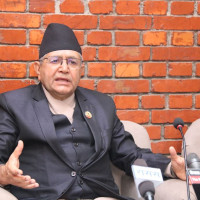
-square-thumb.jpg)


